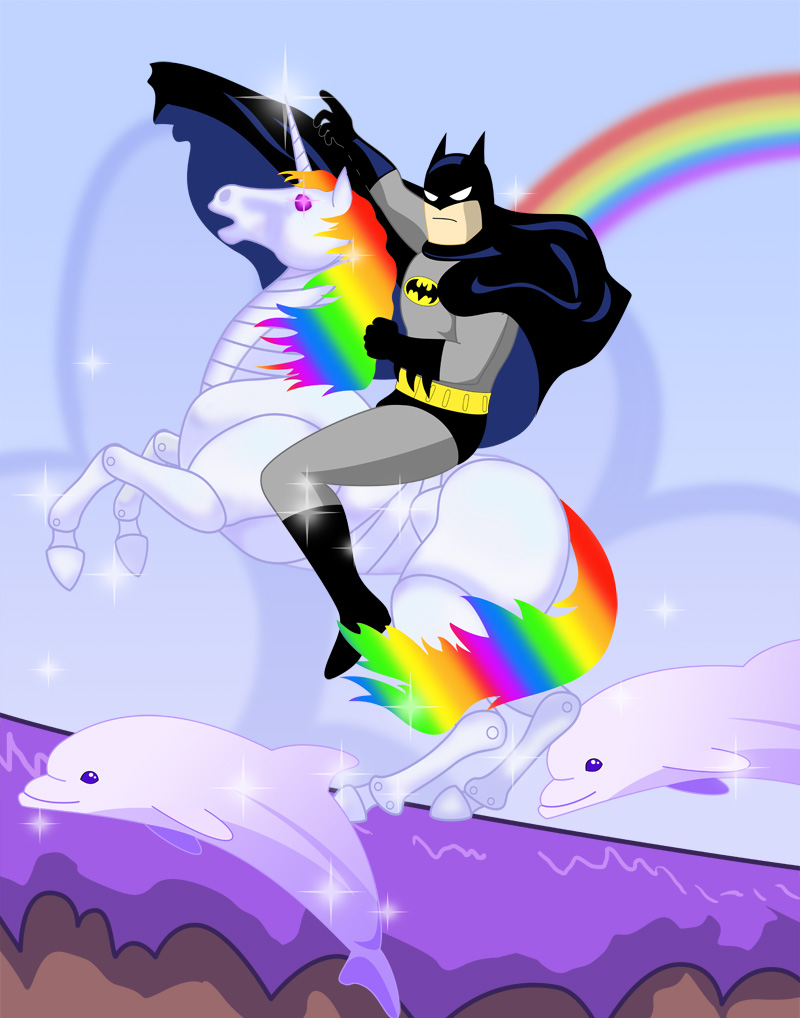Kickstarter is Not a Magical Pony
There’s been a lot of talk recently about how Kickstarter is a game changer! The Answer for independent artists! A magic pill able to make anyone rich!
This is BS.
I don’t mean to denigrate the services that Kickstarter and IndieGoGo provide, because I think their services are awesome. I’m just tired of the hype-makers that keep selling the idea that crowd funding is a magical pony: new, unique and a guaranteed path to riches!
The thing that is new, unique and your best path to riches is the same as it was before crowd funding (and the same as it was before self-publishing/producing): You. You are the thing that will make you successful.
Without you, crowd funding does nothing. Crowd funding provides an opportunity, but it doesn’t, and can’t, create anything new or make a bad idea good.
The skills and work required to make crowd funding successful also aren’t magical. They are the same boring “gimmicks” that have always helped people succeed: hard work, a good network and passion.
Work hard.
One of the things I most dislike about magical Next Big Thing hype is that it ignores the role hard work plays into someone using The Next Big Thing successfully.
Crowd funding will not work if you are proposing to fund something that you haven’t put any work into.
It will not work if you want to fund a “great idea” you came up with last week or something you’ve been meaning to do for ages but haven’t gotten around to.
Crowd funding is not what you turn to if you want money, attention and success without having to work for it.
But crowd funding is great for projects that have hours and hours of labor already invested in them and are ready to take the next big step.
To successfully use crowd funding, you need to make sure you’ve put in the work necessary to prove to others that you deserve to be taken seriously.
The level of work necessary for a project to be successful is dictated by the project itself. For some, twelve months of tinkering will do the trick, for others, it might take 12 years. Don’t underestimate the amount of work you’ll need to put in before you use the Next Big Thing to take you to the next level.
The second old school truism is that your network is your richest resource.
I’ve heard the algorithm “if one person tells five friends, and those people tell five friends, and those people tell five friends” more times than I care to count.
If this were true, the entire world would know everything that has ever happened ever and every crowd funding campaign would get funded.
But the entire world doesn’t know everything that’s ever happened and some campaigns fall short, because not all five-friend-networks are created equally.
Some networks are exceptionally good at getting messages out about a new movie, but suck at getting people to donate money for a charity; others might be great for organizing events but not so great at passing along news.
You need to know what your network is good at doing and what it’s not good at doing before you try to use it to boost your business. And if your network isn’t good at doing what you need it to do, you need to find out how to tap into the network that will help you.
The best way to understand your network and find new ones is to, you guessed it, network.
You might not feel comfortable networking at first, but practice helps and eventually you won’t even notice that you’re doing it. Because if you’re networking right it just feels like meeting new people and having interesting conversations.
Remember that giving is as important as getting. Make your network stronger by supporting your peers’ good work, responding to their calls for help, and passing along resources you think they can use.
Finally, above all else, be passionate.
There are many projects, 56% in fact, that don’t get funded on Kickstarter.
Some of them don’t get funded because the creator didn’t put enough work into them before launching and some of them don’t get funded because they didn’t have the right network to effectively broadcast their message.
But many of those projects just plain don’t get funded.
The difference between a project that doesn’t get funded and an unsuccessful project is what the creator does after the campaign closes.
A passionate creator will regroup, do research, change the project accordingly, and ask for help. She will do this because doing anything else doesn’t make sense. She will do this because she knows her project will see the light of day, it just hasn’t gotten there quite yet. Her project is not unsuccessful, it’s just delayed.
Working for yourself, no matter what you’re doing, requires a passion that gets you through those times when things don’t work out. It requires a passion that helps you see those times as opportunities to learn about your business rather than as failures you’ll never shake off.
This is not an easy passion to cultivate, but it is worthwhile; necessary even. Passion is the thing that will keep you going when you’re tempted to give up. And guess what? Everyone is tempted.
There will always be some new product, service or gimmick that people will try to convince you is Absolutely Necessary to your success as a freelancer or independent artist. Resist the urge to buy into the hype of the easy win.
You will make yourself successful through hard work, a good network, passion and a dash of luck. None of these are things a product or service can give you. But if you have them, you can use just about anything to become successful.
Featured image by Rosewine via deviantART.
Categories: The Rest








I totally agree because I can see it for myself… Don’t have strong network, so all of the hard work and passion can’t help much… 🙁 My campaign is pretty much silent for now. Only two donations… But I hope for the better! 🙂 Cheers!
Good luck! 🙂
Fantastic post, Katie! This is going in my Kickstarter resources post. I think every artist interested in attempting a campaign needs to check this out.
Thanks so much, Laur! I hope it proves to be helpful for many folks who decide to use crowd funding.
Does anyone ever check up on the funded Kickstarter projects that never do what they promise to do? (Take the money and run…)
To my knowledge the backers are the only ones that can keep the creator (or producer or whomever) honest about producing what they said they’d produce. The assumption being that if you try to raise $ again, no one will support you because you failed to deliver the first time ’round.
I think part of the reason I find KS and IndieGoGo fascinating is that they operate very simple markets. The markets have very little regulation and the consumer has a significant amount of power in being able to endorse (& promote) or ignore (& perhaps deride) specific projects.